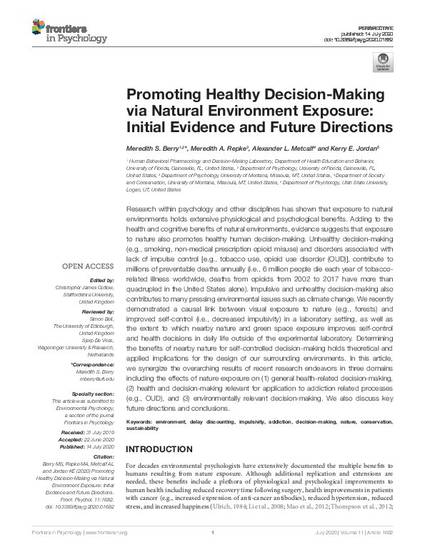
Research within psychology and other disciplines has shown that exposure to natural environments holds extensive physiological and psychological benefits. Adding to the health and cognitive benefits of natural environments, evidence suggests that exposure to nature also promotes healthy human decision-making. Unhealthy decision-making (e.g., smoking, non-medical prescription opioid misuse) and disorders associated with lack of impulse control [e.g., tobacco use, opioid use disorder (OUD)], contribute to millions of preventable deaths annually (i.e., 6 million people die each year of tobacco-related illness worldwide, deaths from opioids from 2002 to 2017 have more than quadrupled in the United States alone). Impulsive and unhealthy decision-making also contributes to many pressing environmental issues such as climate change. We recently demonstrated a causal link between visual exposure to nature (e.g., forests) and improved self-control (i.e., decreased impulsivity) in a laboratory setting, as well as the extent to which nearby nature and green space exposure improves self-control and health decisions in daily life outside of the experimental laboratory. Determining the benefits of nearby nature for self-controlled decision-making holds theoretical and applied implications for the design of our surrounding environments. In this article, we synergize the overarching results of recent research endeavors in three domains including the effects of nature exposure on (1) general health-related decision-making, (2) health and decision-making relevant for application to addiction related processes (e.g., OUD), and (3) environmentally relevant decision-making. We also discuss key future directions and conclusions.
